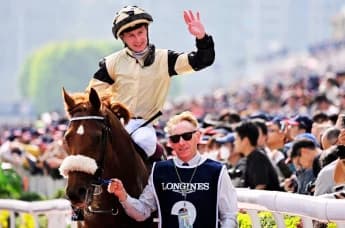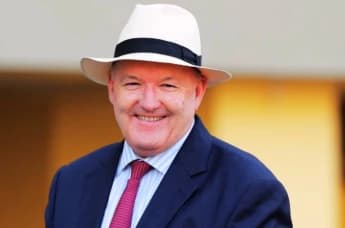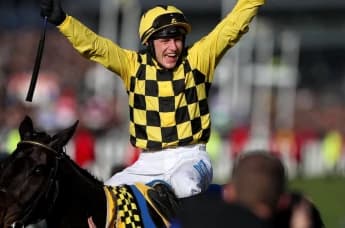13 Misconceptions About Horse Riding Everyone Should Know

Explore the often misunderstood world of equestrianism, where dedication and skill meet grace and athleticism. Join us as we debunk myths and celebrate the rich, diverse sport of horseback riding."
Every experienced equestrian understands that talking about horses with those who are outside the riding community often leads to eye-rolls and polite, yet frustrated, reactions. Despite the rich knowledge and history tied to the sport, various misconceptions and oversimplifications continue to prevail in discussions about horse riding. From incorrect assumptions regarding the physical demands to misidentifications of different equestrian disciplines, here are 13 remarks that horse lovers are all too familiar with.
1. The "Dancing Horses" Misconception
It's a long-standing question related to dressage: "Oh, so you’re referring to the dancing horses?" Although dressage can appear to be a graceful ballet, many overlook that it is a highly skilled sport that relies on precision and years of training. Who originated the concept of "dancing horses," and when will this misconception finally fade away?
2. The Perpetual “You Should Have Learned This By Now”
“How long have you been riding? Shouldn't you have mastered it by now?” This implies that years of training, practice, and progress mean nothing in the context of riding a horse. Professional equestrians commit themselves to honing their skills for a reason, and it is definitely not because riding is something you can easily 'learn' after just a few lessons.
3. The "You Must Know Someone" Remark
“I know someone who is really passionate about horses—do you happen to know them?” This implies that the equestrian world is so limited that every rider must know each other. Although we all share a passion for horses, the equestrian community is extensive, making it improbable that you've encountered every other rider in existence.
4. The Oversimplified 'Just Riding' Statement
“Why just call it riding? Horseback riding is sufficient.” While this may appear insignificant to those unfamiliar with the equestrian world, for individuals who have dedicated years to mastering the art of riding, this distinction holds considerable importance. It's more than merely “riding” — it's horseback riding, a discipline that demands skill, a strong bond with the horse, and intense concentration.
5. The Fitness Inquiry
“Riding as a means of fitness? Isn’t the horse doing all the work?” This remark is often surprising considering the intense physical requirements involved in riding. It engages core strength, balance, and flexibility, making it a highly demanding activity that involves much more than simply holding the reins. The fact that it is recognized as an Olympic sport across various disciplines underscores its athletic nature.
6. Not All Equestrian Events Involve Racing
“So, who do you think will win the race?” is a common question asked with excitement as you get ready to attend Badminton or another event. However, it's important to note that not every equestrian event is a race, and confusing different disciplines can be frustrating for those who understand the distinctions. Each of the disciplines, including eventing, show jumping, and dressage, has its own unique challenges and requirements.
7. Not All Riders Are Jockeys
The world of equestrianism is varied, but many people mistakenly believe that all riders are jockeys. Take Lottie Fry, for instance; she is one of the leading dressage riders, and her goals are certainly not aligned with the Grand National. Grasping the different disciplines within the sport is essential for recognizing the unique accomplishments of each rider.
8. A Pony Is Not a Young Horse
“What a lovely pony! How large will it get once it becomes a horse?” This question is a common misconception. A pony is always a pony, and even though there may be some similarities in size, they represent a unique breed with distinct traits and a specific role within the equestrian world.
9. Can Horses Learn by Watching?
“Isn't it possible for your horse to learn just by observing another horse?” If only it were that straightforward. Educating a horse requires the establishment of trust, effective communication, and consistent practice. Horses do not instinctively gain skills simply by watching others — it necessitates time, patience, and the appropriate methods.
10. Clipping Is Not Inhumane
Clipping, which is often done in the winter months, is not a cruel practice but rather an essential one to promote a horse's comfort and performance. The belief that clipping is detrimental stems from a lack of understanding of its intent. It is not simply a matter of "shaving" — it is a thoughtful and careful form of grooming.
11. Zara Tindall Is Not a Showjumper
Even with her achievements at the Olympics, Zara Tindall's career is often misunderstood, with many people mistakenly identifying her as a showjumper instead of an eventer. This misunderstanding is widespread, even among those who are only casually familiar with the equestrian world, despite her success in winning medals in eventing.
12. Not Every Event Is Focused on Competing at Burghley
“So, you’re heading to Burghley this weekend — are you in the competition?” While being at a renowned event such as Burghley is certainly a significant accomplishment, it’s important to recognize that not everyone who attends is there to compete. Many equine enthusiasts come for the show and the sense of community within the equestrian world, rather than solely to take part.
13. The Ceaseless Notting Hill Allusion
“I’ve watched Horse & Hound on television. Is it similar to the film ‘Notting Hill’?” This question always seems to come up when people find out you work for a horse-focused publication. The frequent mention of Hugh Grant and Julia Roberts can become somewhat tiresome, but at least it indicates that the film left an impression.
These 13 remarks are not merely innocent mistakes—they highlight a significant misunderstanding regarding the dedication and intricacies of equestrianism. Although horseback riding may not always receive the recognition it merits as a legitimate sport, it’s essential for those outside the equestrian community to recognize the level of commitment and skill it demands. Let's advance the dialogue by dispelling these persistent misconceptions and valuing the sport for the rich, diverse, and challenging pursuit that it genuinely is.






